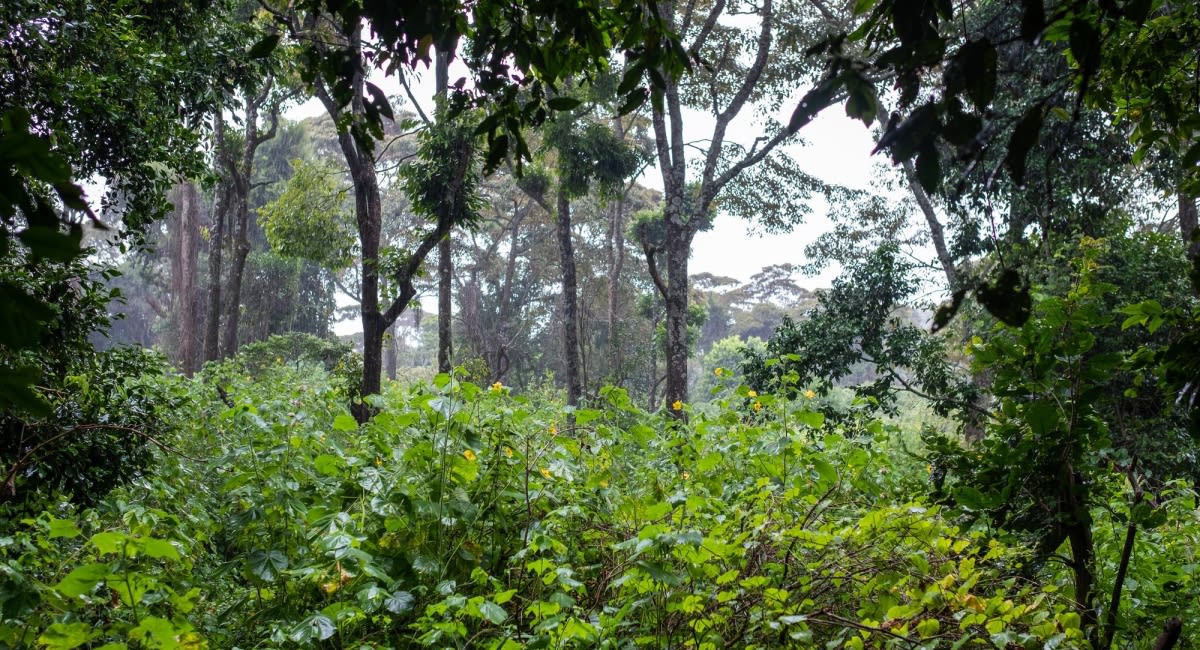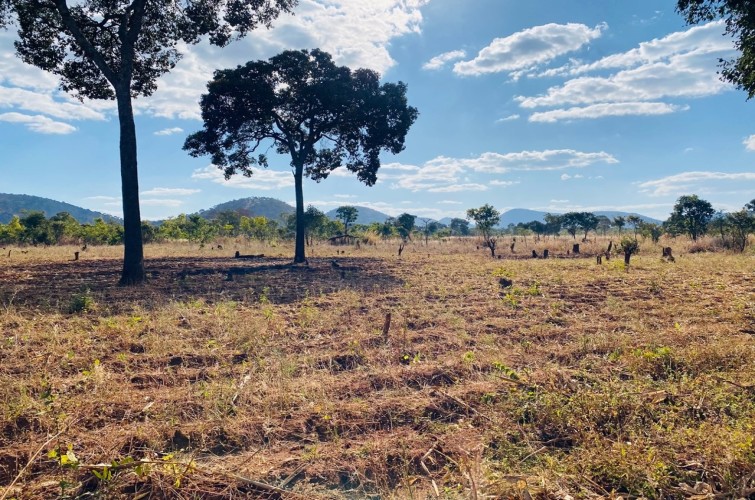Investing in community level land and environment governance institutions is imperative to the success of national forest and landscape restoration plans: TMG case study of Bua catchment in Malawi
A case study of forest protection and conservation measures implemented Bua catchment area in Malawi, and the tenure rights dynamics for local communities living adjacent to forestlands.
by Washe Kazungu | 2024-07-16

Over the last four years, TMG’s Global Soil Week project has been undertaking research in Benin, Kenya, Madagascar and Malawi to develop solution pathways for mainstreaming legitimate tenure rights in national LDN programmes. The project, funded by the German Ministry for Economic Cooperation and Development (BMZ), is a follow-up to the 2019 UNCCD Land Tenure Decision (Decision 26/COP.14) that called on parties to the convention to recognize legitimate tenure rights and to apply the principles of responsible land governance as they implement measures to address land degradation. The decision aims to put people and communities at the centre of efforts to restore degraded lands and achieve Land Degradation Neutrality (LDN). The GSW project sought to examine how the decision is being implemented at the national level by analyzing community tenure rights dynamics in LDN target areas.
Malawi’s Land Degradation Neutrality Target Setting Programme (LDN TSP) has prioritized forest protection and conservation, and land restoration in their efforts to combat desertification and to achieve LDN. Six out of the eleven specific targets listed in the Malawi LDN TSP refer to protecting, restoring, regenerating, and sustainably managing forests. The first case study under the GSW project in Malawi sought to establish tenure dynamics for communities living adjacent to Ntchisi Forest Reserve, and whether the national land and forest governance laws and policies sufficiently protect communities’ tenure rights. The Bua catchment case study, the second in Malawi, sought to build more evidence on the need for prioritizing tenure issues in national LDN and land restoration programmes. This case study set out to establish tenure-related challenges that communities living adjacent to Mchinji Forest Reserve and Kasungu National Park experience, and to identify entry points for resolving these challenges.
TMG partnered with Total LandCare (TLC) Malawi to undertake the contextual analysis of the study area, a household survey to determine the resources that communities obtain from the protected areas, mapping of land use overlaps within and adjacent to protected areas, and Focus Group Discussions (FGDs) to collect qualitative data to complement the quantitative findings of the initial project activities. TLC also conducted community meetings in six villages within Mchinji and Kasungu Districts to validate the findings of the household survey, and a national validation workshop to present the findings of the study and get the input of land and environment sector stakeholders (national government departments, local authorities, civil society organizations and academia).
The findings of the Bua catchment case study present a case of legal provisions that are offer entry points for the recognition of tenure rights and application of the principles of responsible land governance, as prescribed by the UNCCD Land Tenure Decision. However, the limited capacity of community-level institutions has hindered the implementation of these legal provisions. While access to protected areas is more controlled for Kasungu National Park (under the management of the Parks and Wildlife Department), there are less controls for Mchinji Forest Reserve (under the management of the Forestry Department). As a result, communities are practicing crop cultivation in sections of the forest reserve. Notably, despite over 90 percent of Malawians in rural areas relying on fuelwood for household energy needs, majority of the respondents in this study obtain fuelwood from Village Forest Areas and individual woodlots. This is mainly due to the restricted access to Kasungu National Park - communities living adjacent to this protected area can collect mushrooms and other non-timber forest products from the park but they are prohibited from collecting fuelwood. However, the buffer zone cultivation happening in the areas outside the national park, and the demand for land for cultivation that has resulted in communities farming within sections of Mchinji Forest Reserve point to an urgent need for holistic LDN plans that will also support community livelihoods.

The Malawi Bua catchment case study highlights the need for investing in the institutional framework of forest conservation and land restoration at the community level in order to restore forest landscapes (within and outside protected areas) while supporting meaningful, sustainable livelihoods. Evidently, the success of national forest and landscape restoration plans comes down to investing in both policy and legal frameworks as well as the local level institutions that are mandated to implement the policies and laws. National forest and landscape restoration targets cannot be met without sufficiently investing in community level institutions. While policies and laws are the first step in aligning national contexts to the globally accepted standards of land and tenure governance (the VGGT), the desirable outcomes of these policies and laws can only be achieved if local level institutions are well resourced to play their part. As more African countries prioritize forest protection and conservation and land restoration (mainly tree growing initiatives) as their main response to land degradation as well as to climate change and biodiversity loss, a stronger case should be made for enhancing recognition of tenure rights of local communities by strengthening local level land and environment governance institutions.
What’s next? In 2024, TMG will continue to highlight the need for integrating tenure rights in LDN and land restoration programmes at key moments throughout the year and in the lead-up to the UNCCD COP16 set to take place in Riyadh, Saudi Arabia in December. TMG hosted a second edition of the Women Land Rights and the Rio Conventions in June to further call for joint action on tenure rights issues across all national efforts to address climate change, biodiversity loss, and loss of healthy and productive soils. In October 2024, TMG will launch the Climate and Land Rights Atlas. The publication explores the increasing land-based interventions (reforestation, afforestation, and avoided deforestation) from governments and private actors to reduce greenhouse gases, and the implications of these interventions for the security of land tenure and the livelihoods of local communities. The events throughout the year will be leading up to COP16 in December where TMG plans to work with UNCCD National Focal Points and Civil Society Organizations to present a stronger position on land tenure for adoption by the parties to the convention.
Read the report here:
TMG Report Malawi Case Study Urban Food FuturesFeb 09, 2026
Urban Food FuturesFeb 09, 2026Pushing the horizon: Urban farming and community-led innovation in Mukuru informal settlement
A small community-run greenhouse in Mukuru is offering insights into how controlled-environment agriculture can strengthen food security in urban environments under increasing pressure—and a look into the future of food systems in informal settlements.
Christian Sonntag, Emmanuel Atamba, Lumi Youm
 Land GovernanceDec 18, 2025
Land GovernanceDec 18, 2025Land tenure, women’s land rights, and resilience: Reflections from CRIC23 toward UNCCD COP17
Our experts discuss what the exchanges at CRIC23 highlighted and revealed about the role of secure and gender-equitable land tenure in the UNCCD's work ahead of the 2026 triple COP year.
Frederike Klümper, Washe Kazungu
 Urban Food FuturesDec 09, 2025
Urban Food FuturesDec 09, 2025The story of Mukuru's Urban Nutrition Hub
In Mukuru informal settlement, a safe haven for women has grown into the Urban Nutrition Hub, a multi-purpose space for nutrition education, training, and community development, demonstrating the potential of grassroots community-owned innovation..
Serah Kiragu-Wissler


